Related Research Articles

Adolph Green was an American lyricist and playwright who, with long-time collaborator Betty Comden, penned the screenplays and songs for musicals on Broadway and in Hollywood. Although they were not a romantic couple, they shared a unique comic genius and sophisticated wit that enabled them to forge a six-decade-long partnership. They received numerous accolades including four Tony Awards and nominations for two Academy Awards and a Grammy Award. Green was inducted into the Songwriters Hall of Fame in 1980 and American Theatre Hall of Fame in 1981. Comden and Green received the Kennedy Center Honor in 1991.
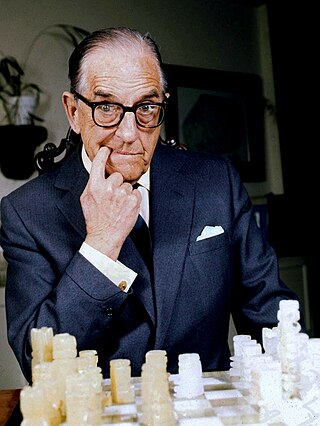
Stanley Augustus Holloway was an English actor, comedian, singer and monologist. He was famous for his comic and character roles on stage and screen, especially that of Alfred P. Doolittle in My Fair Lady. He was also renowned for his comic monologues and songs, which he performed and recorded throughout most of his 70-year career.
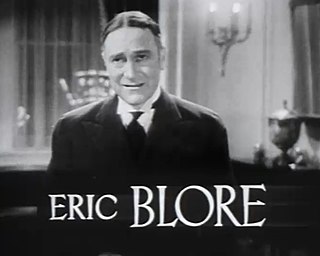
Eric Blore Sr. was an English actor and writer. His early stage career, mostly in the West End of London, centred on revue and musical comedy, but also included straight plays. He wrote sketches for and appeared in variety.

The Prince of Wales Theatre is a West End theatre in Coventry Street, near Leicester Square in London. It was established in 1884 and rebuilt in 1937, and extensively refurbished in 2004 by Sir Cameron Mackintosh, its current owner. The theatre should not be confused with the former Scala Theatre in London that was known as the Prince of Wales Royal Theatre or Prince of Wales's Theatre from 1865 until its demolition in 1903.

The Bing Boys Are Here, styled "A Picture of London Life, in a Prologue and Six Panels," is the first of a series of revues which played at the Alhambra Theatre, London during the last two years of World War I. The series included The Bing Boys on Broadway and The Bing Girls Are There. The music for them was written by Nat D. Ayer with lyrics by Clifford Grey, who also contributed to Yes, Uncle!, and the text was by George Grossmith, Jr. and Fred Thompson based on Rip and Bousquet's Le Fils Touffe. Other material was contributed by Eustace Ponsonby, Philip Braham and Ivor Novello.
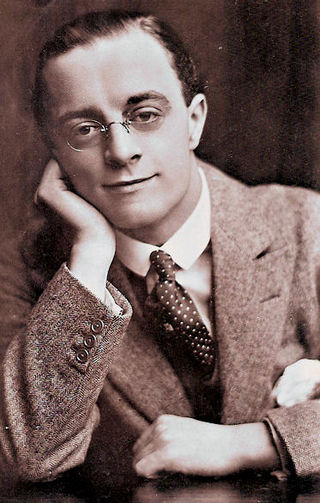
Leslie Lincoln Henson was an English comedian, actor, singer, producer for films and theatre, and film director. He initially worked in silent films and Edwardian musical comedy and became a popular music hall comedian who enjoyed a long stage career. He was famous for his bulging eyes, malleable face and raspy voice and helped to form the Entertainments National Service Association (ENSA) during the Second World War.

Jean Kent, born Joan Mildred Field was an English film and television actress.
Melville J. Gideon was an American composer, lyricist and performer of ragtime music, composing many themes for hit Broadway musicals including The Co-Optimists and The Beauty Spot. He was also a director, producer and performer. He was born in New York City, and died in London, aged 49.
Nuts and Wine was a theatrical revue, with lyrics by C. H. Bovill and P. G. Wodehouse and music by Frank E. Tours, with additional numbers by Guy Jones and Melville Gideon, from a book by Bovill and Wodehouse. It was performed at the Empire Theatre, London, opening on 3 January 1914. The show closed on 28 March 1914, after a run of 12 weeks.
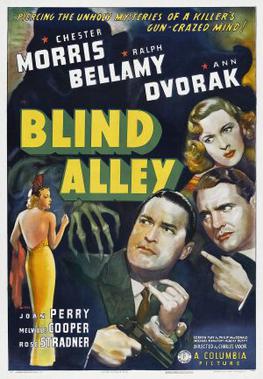
Blind Alley is a 1939 American film noir crime film directed by Charles Vidor and starring Chester Morris, Ralph Bellamy and Ann Dvorak. The film was adapted from the Broadway play of the same name by James Warwick.
The Co-Optimists is an all-talking sound 1929 British musical film revue directed by Edwin Greenwood and Laddie Cliff and starring Davy Burnaby, Stanley Holloway and Betty Chester. It was made at Twickenham Studios. The film was broken up into parts and re-released as six short films in 1931.

Carnival is a 1946 British drama film about a ballet dancer of the Edwardian era, directed by Stanley Haynes and starring Sally Gray, Michael Wilding, Stanley Holloway and Jean Kent. It is based on the 1912 novel of the same name by Compton Mackenzie, which had previous been made into a 1932 film version Dance Pretty Lady by Anthony Asquith. It was shot at Denham Studios with sets designed by the art director Carmen Dillon.

A Night Out is a musical comedy with a book by George Grossmith, Jr. and Arthur Miller, music by Willie Redstone and Cole Porter and lyrics by Clifford Grey. The story is adapted from the 1894 French comedy L'Hôtel du libre échange by Georges Feydeau and Maurice Desvallières. The sculptor Pinglet gets an evening away from his domineering wife and dines with the attractive Marcelle Delavaux. After a series of coincidences and mix-ups, he manages the deception without suffering any adverse consequences.

Feather Your Nest is a 1937 British musical comedy film directed by William Beaudine and starring George Formby, Polly Ward and Enid Stamp-Taylor. It contains Formby's signature tune, Leaning on a Lamp-post.

The English comic singer, monologist and actor Stanley Holloway (1890–1982), started his performing career in 1910. He starred in English seaside towns such as Clacton-on-Sea and Walton-on-the-Naze, primarily in concert party and variety shows. The first of these, The White Coons Show, was soon followed by the more prestigious Nicely, Thanks! in 1913. From here, he went on to co-star in The Co-Optimists, a variety show which brought him to wider audience attention. After the First World War, he returned to London and found success in the West End musicals at the Winter Garden Theatre, including Kissing Time (1919), followed in 1920 by A Night Out. The Co-Optimists continued until 1927, and he then appeared in Hit the Deck, a comic musical which appeared both in London and on Broadway. Reporting for The Manchester Guardian, the theatre critic Ivor Brown praised Holloway for a singing style "which coaxes the ear rather than clubbing the head."

Excess Baggage is a lost 1928 American synchronized sound comedy film directed by James Cruze and distributed by MGM. While the film has no audible dialog, it was released with a synchronized musical score with sound effects using both the sound-on-disc and sound-on-film process. The film was based on the 1927 play of the same name by John McGowan. The film starred William Haines, Josephine Dunn and Kathleen Clifford.
Tails Up! was a 1918 London revue presented by André Charlot starring Jack Buchanan. The premiere took place at the Comedy Theatre, London on 1 June 1918 with Philip Braham conducting the band, and the show ran for 467 performances.

Laddie Cliff was a British dancer, choreographer, actor, producer, writer, and director of comedy, musical theatre and film. He was noted for his versatility. His many London West End theatre appearances and films included a long association with fellow thespian Stanley Lupino. He was married to the actress Phyllis Monkman. He died in 1937 after a period of ill health.
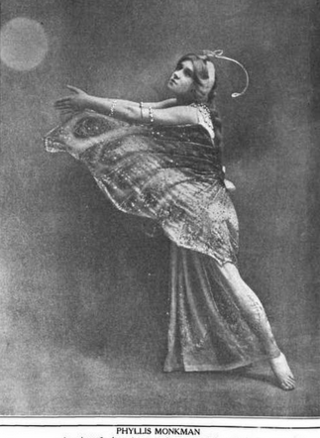
Phyllis Monkman was a British stage and film actress. She was married to the entertainer Laddie Cliff.
References
- ↑ "The Theatres", The Times, 20 June 1921, p. 9
- ↑ "The Palace Itself Again – Co-Optimists' Cheery Burlesque", The Times, 23 August 1921, p. 6
- ↑ "The Co-Optimists", The Times, 30 November 1926, p. 12
- ↑ "The Film World", The Times, 18 December 1929, p. 12
- ↑ "The Co-Optimists". AMC . Retrieved 23 October 2013.